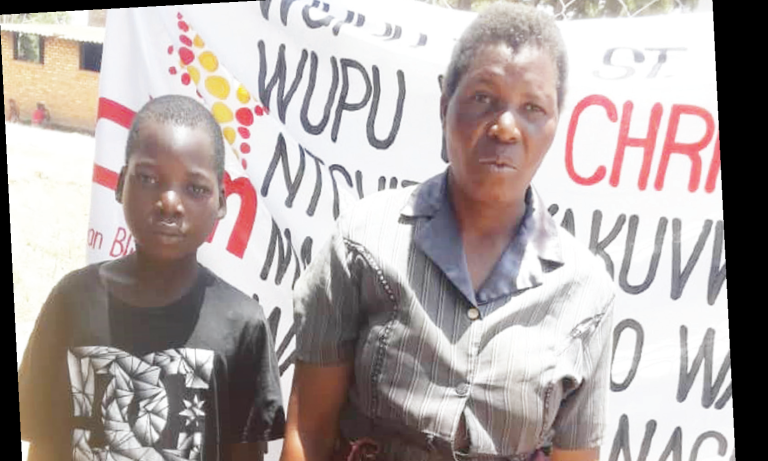Cry for inclusive schools
Like many Malawian children, Novious Phiri, 11, was happy to start schooling aged six.
But he soon dropped out due to difficulties in hearing and speech.

The boy, who lives with his parents in Zamba Village, Traditional Authority Mabilabo in Mzimba, was born without any disability. However, tragedy struck shortly after his third birthday.
His father of the same name narrates: “When he was three years old, my son received quinine after being diagnosed with malaria at Mzimba District Hospital.
“After finishing the dosage, the child couldn’t utter simple words such as mama and dada.”
Phiri senior says the boy’s speech and hearing kept worsening despite health workers’ assurances that he would get better gradually.
“The ray of hope faded with time,” says the parent.
Phiri enrolled his son at Chongeya Primary School “to enjoy the right to education and better chances in life” like any other child.
However, the hand-to-mouth farmer was surprised when their son was sent back from school by teachers due to his acquired conditions.
“The headteacher told me and my wife that they couldn’t keep the child in school because of his speech and hearing difficulties,” he recalls.
The father of four boys and two girls admittedly felt helpless to see those who were supposed to assist the child sending him back home.
Phiri paid an extra cost to secure a place for his “rejected son” at Embangweni School for the Deaf, almost 85 kilometres away.
“My child would have been in Standard Five had he not been chased from Chongeya,” he says.
Novious is just one of many children with disabilities struggling to access education in the country even though Section 20 of the Constitution outlaws all forms of discrimination.
But a Mr Chima, deputy headteacher at Chongeya, says the school authorities did not banish the child with disabilities.
“We only advised Novious’ parents to take the child to a school for the deaf, but they did not do it on time,” he explains.
In 2007, the Ministry of Education embraced a new policy to entrench inclusive and equitable access to education in all schools.
The five-year initiative, which expired last year, was conceived to accelerate progress to achieve the global Sustainable Development Goal (SDG) number 4 which promotes quality life-long learning for every child.
Novious’ story shows how children with disabilities are being left behind in the race to achieve SDG4 on inclusive and equitable quality education for all by 2030.
With just eight years to the deadline, disability rights campaigner Ethel Kachala Chibwana says Malawi remains off target at the current pace.
“It is unfortunate we have an education system that can afford to send back a child who is seeking enrollment because he has a disability,” says the executive director of the Federation of Disability Organisation in Malawi (Fedoma).
To Chibwana, the fact that the school does not have specialist teachers is no excuse or justification to exclude children with disability from learning.
“This is sheer discrimination,” she says. “Imagine a person who has an eye problem and goes to Luwelezi Health Centre where there is no eye specialist. Will the health workers send back the patient?
“Surely, the health workers at the rural facility will simply refer the patient to Mzimba District Hospital or Mzuzu Central Hospital where the necessary skills are available. Why doesn’t the education system do the same?”
Chibwana says teachers are to surrounding communities “what agricultural extension workers are to farmers”.
“The communities around schools rely on the headteacher and his staff in terms of education support and advice. As duty-bearers, they shouldn’t shun their responsibility,” she states.
However, Civil Society Education Coalition (Csec) executive director Benedicto Kondowe says government is not serious about promoting inclusive education.
He states: “Currently, teacher training colleges do not teach special needs education. So, it’s difficult for government primary school teachers to assist learners with disabilities,” he says.
“Just imagine in the Ministry of Education, all other directorates have director and deputy director while inclusive education has only deputy director, which is a mockery”.
Recently, the ministry’s spokesperson Chikondi Chimala said government is doing everything possible to address the shortage of special needs teachers in public schools in the country.
“The government is training 155 specialist teachers in a three-year diploma course in special needs, with another 200 undergoing a certificate in inclusive education course at Montfort College in Chiradzulu,” he explained.
Chimala further stated 200 specialist teachers are undergoing open-distance learning at Machinga Training College.
“Upon completion of their training, these teachers will be deployed in all the 28 districts,” he said.





